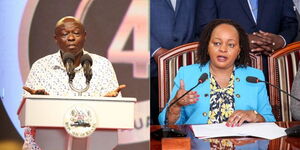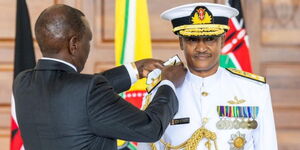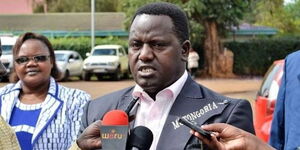The right to recall an elected Member of Parliament is one of the little-known yet powerful tools available to Kenyans, thanks to the Constitution.
Recall of a lawmaker is enshrined in Article 104 of the constitution, which states that “The electorate has the right to recall a Member of Parliament before the end of the term of the relevant House of Parliament.”
Interest in recalling an MP peaked after the Independent Electoral and Boundaries Commission (IEBC) chair, Erastus Ethekonn revealed the agency received four requests to have MPs recalled.
But what does the recalling process entail exactly?
Firstly, it is important to note that a recall can be initiated under certain conditions. These include a gross violation of the Constitution or any other law, mismanagement of public resources, or if an MP is convicted of an offence under the Elections Act.
Despite the ability of an electorate to recall an MP, there are restrictions as it cannot happen within the first two years after an election or during the final year before the next general election. This effectively leaves a two-year window in the middle when a recall can happen.
In the event voters believe their MP has failed in their constitutional mandate, the law requires the accusations to be substantiated in court.
Steps
With this in mind, the first step in the recall process involves initiating proceedings at the High Court to prove that the lawmaker committed one of the offences stated above.
If the court finds sufficient grounds, then the process can officially begin with a petition being submitted to the IEBC, accompanied by the court ruling confirming grounds for recall.
The next step is arguably the most demanding as it involves the collection of signatures from at least 30 per cent of the registered voters in the MP's constituency. The law also requires that these signatures include at least 15 per cent of the voters from each ward in the constituency to ensure widespread support.
IEBC is then tasked with verifying the signatures and confirming that all legal and procedural requirements have been met. Once everything checks out, the commission will declare the seat vacant, and a by-election date will be set.
The process has the potential to be complicated by the recalled MP if he decides to contest again in the by-election. The lawmaker will, however, be barred from competing for election or public office if he has a criminal conviction.
In his address in Mombasa on Friday, June 18, the new IEBC chair assured Kenyans that the electoral body would uphold the Constitution in dealing with matters like recalling an MP, emphasising that IEBC would only act within the limits of the law.
"Kenyans are actively discussing this subject of recall. So, currently we have received roughly four applications, and we will look at them once we get back to the office," Ethekon said.
"It is the right of every Kenyan to exercise their right to recall an MP as per the Constitution, and as the electoral board, we will do what the law allows us to do," he added.












